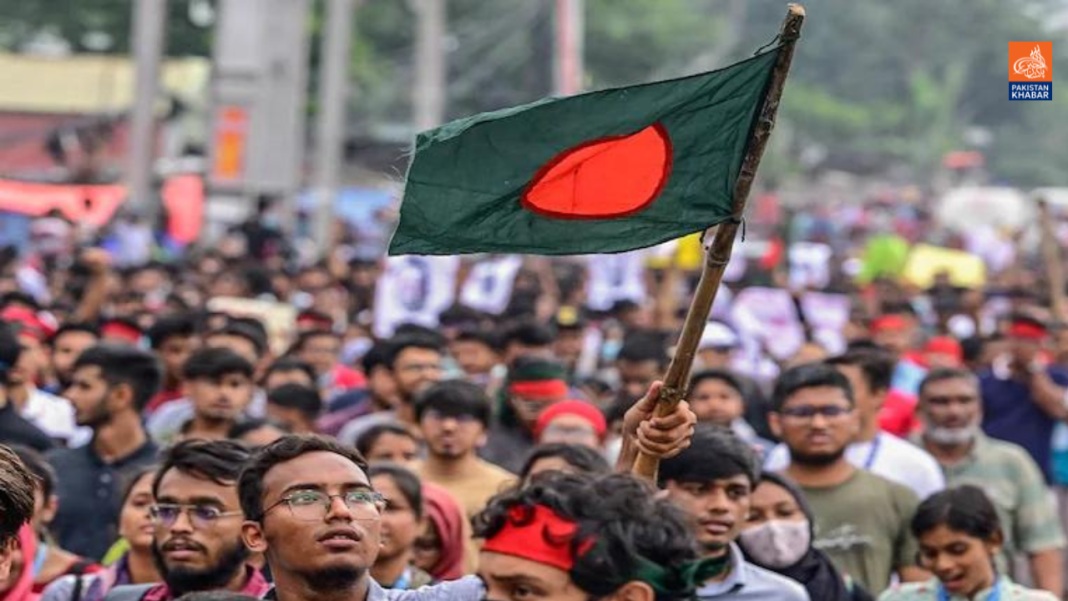Protesting students in Bangladesh have called for a march to the capital, Dhaka, on Monday, defying a nationwide curfew to demand Prime Minister Sheikh Hasina’s resignation. This call comes a day after violent clashes across the country resulted in nearly 100 deaths.
On Monday, army tanks and police vehicles patrolled the streets of Dhaka, with security forces on foot and minimal civilian traffic, except for a few motorcycles and three-wheel taxis.
The violence that erupted on Sunday resulted in at least 91 deaths and hundreds of injuries as police used tear gas and rubber bullets against tens of thousands of protesters.
In response to the unrest, a nationwide curfew was imposed starting Sunday evening, rail services were suspended, and the garment industry, a major sector in Bangladesh, was shut down.
The protests, which began last month over a controversial quota system for government jobs, have escalated into a broader campaign demanding the resignation of Prime Minister Hasina, who secured a fourth consecutive term in January in an election boycotted by the opposition.
Sunday’s death toll, including at least 13 policemen, was the highest recorded in a single day of protests in recent Bangladeshi history, surpassing the 67 deaths reported on July 19 during earlier student demonstrations against the quotas.
The government declared an indefinite nationwide curfew from 6 PM (1200 GMT) on Sunday and announced a three-day general holiday starting Monday. Protest coordinator Asif Mahmud urged people to defy the curfew and march to Dhaka, declaring, “The time has come for the final answer.”
The Bangladesh Army has called for compliance with the curfew, emphasizing it was imposed to protect lives, properties, and state institutions.
Over the weekend, there were reports of attacks, vandalism, and arson targeting government buildings, ruling Awami League party offices, police stations, and the homes of public officials, with violence affecting 39 of the country’s 64 districts.
Bangladesh Railway has indefinitely suspended all services due to the escalating violence, and garment factories have been closed indefinitely for workers’ safety.
The army’s role in handling the violence is under scrutiny, with retired military officers urging Prime Minister Hasina to withdraw troops and pursue political solutions. Chief of Army Staff General Waker-Uz-Zaman has stated the army’s commitment to the people’s interests but a planned media briefing was canceled without explanation.
Critics and human rights groups have accused Hasina’s government of excessive force against protesters, a claim the government denies. High-speed internet services, including social media platforms like Facebook and WhatsApp, have been shut down for the second time during the protests.
The unrest, which had briefly paused after the Supreme Court struck down most quotas, has resumed with demands for justice and Hasina’s resignation. Tarique Rahman, exiled acting chairman of the opposition Bangladesh Nationalist Party, described the situation as a “bloody struggle between autocracy and democracy” and called on the international community to support truth and justice.




